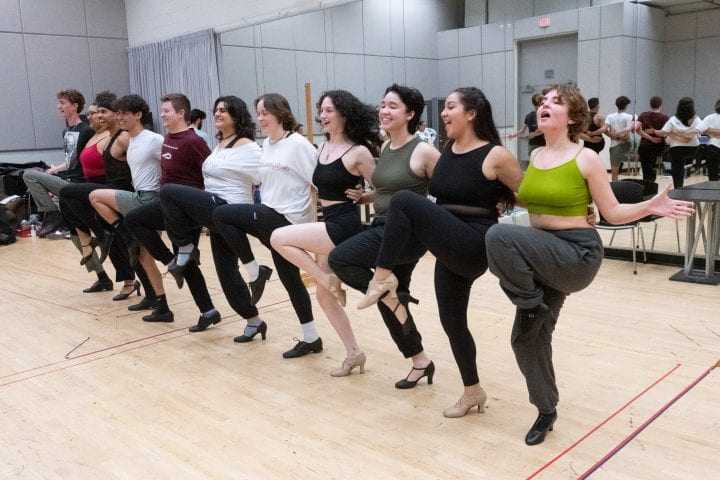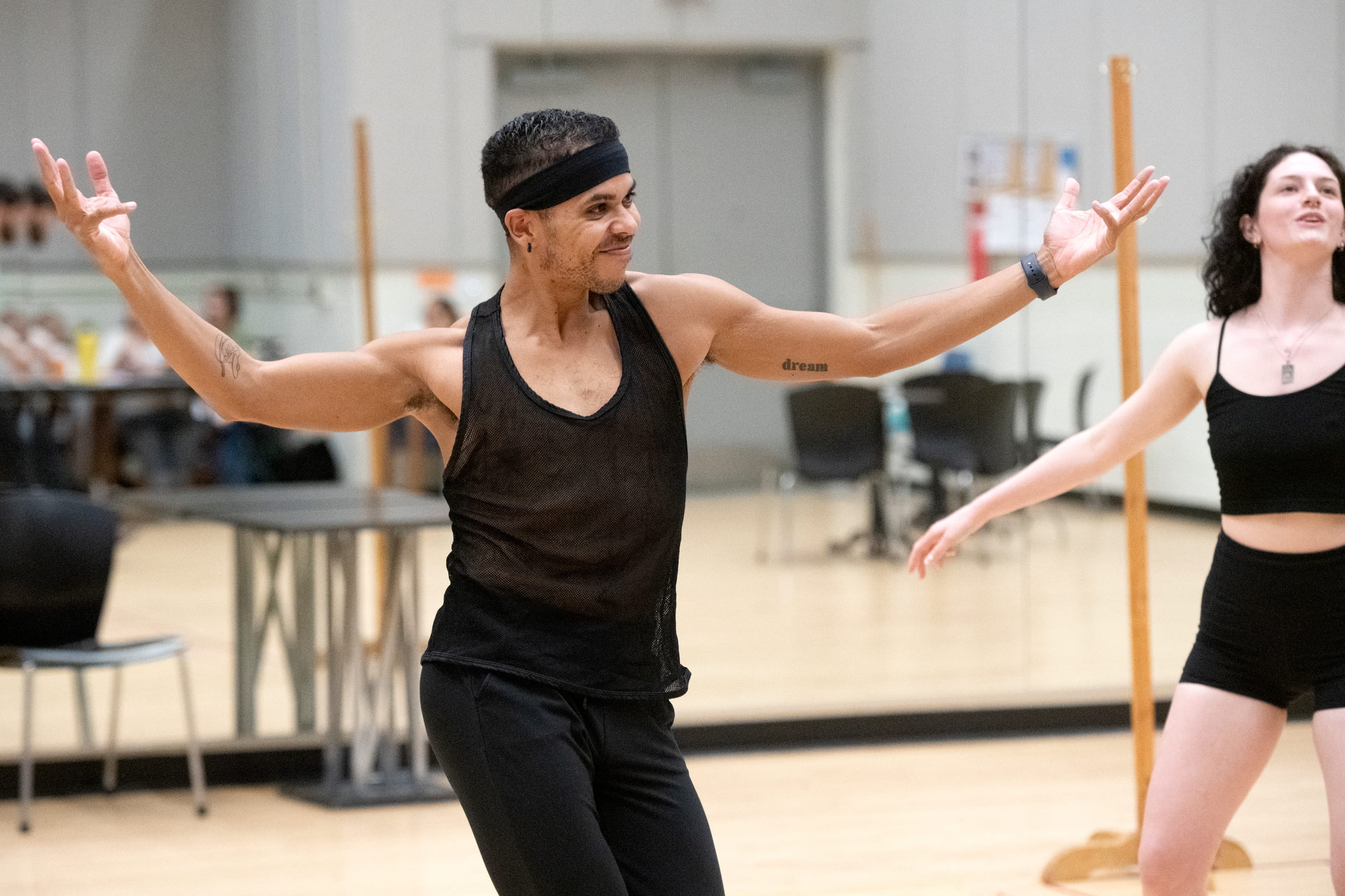Revisiting ‘Cabaret’
Provocative musical is part of UCI’s Year of Free Speech lineup

Dressed in a sleeveless fishnet shirt, striped pants and a crop-top suit jacket, Robert Zelaya will slink onto the stage Nov. 11 to begin a one-week run of “Cabaret,” a carnivalesque musical adapted from a 1951 play based on a 1939 book and better known as a 1972 Academy Award-winning film.
Channeling a seedy Berlin nightclub emcee, Zelaya will interact with audience members drinking mocktails at tables set up near the front of UCI’s Claire Trevor Theatre as the show gets underway.
Later, he’ll appear in drag while performing the cancan with a group of dancers. “He’s the most wackadoo character,” Zelaya says, and much of his dialogue is ad-libbed.

Set in 1929, as the Nazis began their rise to power, “Cabaret” veers from bawdy exuberance to tragedy, like “rose-colored glasses that shatter,” says Zelaya, an M.F.A. acting student whose previous credits include playing one of the disco-dancing twins in “The Comedy of Errors” at UCI’s New Swan Shakespeare Festival.
The musical is also billed as part of the university’s ongoing Year of Free Speech event lineup for its exploration of how artistic expression can be “gradually stifled and silenced as oppressive forces tighten their grip.”
Although censorship is often associated with political views, “artists are historically just as likely to be targeted,” says Tiffany Lopez, dean of UCI’s Claire Trevor School of the Arts. “This play exemplifies the importance and vulnerability of such voices. And it’s a powerful experience in a cultural moment that needs spaces for engaging and processing through free speech.”
UCI’s “Cabaret” was coincidentally scheduled months before the campus free speech campaign arose, says Don Hill, who chairs the Department of Drama and produces all its shows. Plays are chosen based on cost, having the right talent and – one of the biggest challenges – securing the rights. “We’ve been trying to get ‘The Rocky Horror Picture Show’ for 11 years,” he notes.
Almost everything – from costumes and makeup to sets and props – is done in-house. “Cabaret” features a cast and crew of about 85, including three students for whom the play is their thesis project: the director, the stage manager and the sound designer.
For Angela Cruz, directing “Cabaret” is like coming full circle. In 2001, as a student at Fullerton College, she saw the play during a class trip to New York City. “That show was the moment I thought maybe this is what I want to do,” she recalls. “It was my catalyst for directing.”
To put her own stamp on the production, Cruz has added some hip-hop moves to the flapper dance routines and diversified the cast beyond Weimar Germany’s largely white hue. “I wanted it to reflect today, even though it’s a story from the past,” she says. Another Cruz update replaces the “Heil Hitler” salute with one of the clenched fists favored by modern political movements.
The idea is to inspire the audience to see parallels between 1920s Berlin and 2020s America, she says. Ideally, people will walk away from the performance having conversations about “history repeating itself,” Cruz adds.
For more information, tickets and showtimes, including a Nov. 12 matinee with a cast and crew talkback, visit UCI’s “Cabaret” webpage.
If you want to learn more about supporting this or other activities at UCI, please visit the Brilliant Future website athttps://brilliantfuture.uci.edu. Publicly launched on Oct. 4, 2019, the Brilliant Future campaign aims to raise awareness and support for UCI. The Claire Trevor School of the Arts plays a vital role in the success of the campaign. Learn more by visiting https://brilliantfuture.uci.edu/claire-trevor-school-of-the-arts.